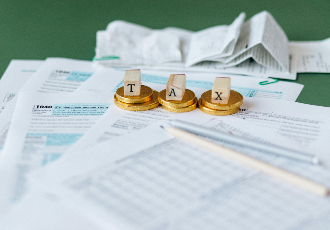
How Are Property Taxes Calculated in Ontario?
If you're a homeowner in Ontario—or planning to become one—understanding how property taxes work is key to managing your finances. Property taxes might seem complicated, but once you know what goes into the calculation, it all starts to make sense. Let's break it down in a simple and straightforward way.
What Are Property Taxes?
Property taxes are annual fees that homeowners pay to their local municipality. These taxes help fund essential services like:
- Garbage collection
- Police and fire departments
- Road maintenance
- Public transit
- Police and fire departments
- Road maintenance
- Public transit
- Schools
- Parks and recreation
The Property Tax Formula
In Ontario, your property tax bill is calculated using this basic formula:
- Parks and recreation
The Property Tax Formula
In Ontario, your property tax bill is calculated using this basic formula:
Property Tax = Current Value Assessment (CVA) × Tax Rate
Let’s dig into each part of that formula:
1. Current Value Assessment (CVA)
This is the market value of your property, as assessed by MPAC (Municipal Property Assessment Corporation). MPAC is an independent body that evaluates the value of all properties in Ontario.
MPAC assessments are supposed to reflect the fair market value of your home as of a certain valuation date. The last province-wide reassessment was based on property values as of January 1, 2016, but the next update has been delayed due to the pandemic.
What affects your CVA?
- Location
- Lot size
- Square footage
- Age of the home
- Renovations or upgrades
-Comparable home sales in the area
2. Tax Rate
Your tax rate is set by your local municipality and varies depending on where you live. It's usually expressed as a percentage of your CVA.
The tax rate is made up of:
- The municipal rate, set by your local council
- The education rate, set by the Province of Ontario
Each municipality publishes its own tax rates every year. For example, a Toronto home may have a different rate compared to one in Ottawa or Mississauga—even if their assessed values are similar.
Example: Calculating Property Tax
Let’s say your home has a CVA of $600,000, and your combined tax rate (municipal + education) is 1.1%.
$600,000 × 0.011 = $6,600/year
You’d pay about $6,600 in property taxes annually.
Tips for Homeowners
Review Your MPAC Assessment: If you think your home’s assessed value is too high, you can file a Request for Reconsideration with MPAC—free of charge.
Budget Accordingly: Property taxes can change yearly depending on your municipality’s budget needs.
Look for Rebates: Seniors, low-income individuals, or people with disabilities might qualify for tax relief programs. Check with your local municipality.
When Do You Pay?
Most municipalities bill property taxes twice a year or split them into quarterly installments. You can usually pay online, via your bank, or set up pre-authorized payments.
Final Thoughts
Property taxes in Ontario might not be the most exciting topic, but understanding how they're calculated can help you budget wisely, plan for the future, and even dispute your tax bill if needed.
Whether you’re buying your first home or you've lived in the same house for decades, staying informed puts you in control.
Photo courtesy of Nataliya Vaitkevich
Let’s dig into each part of that formula:
1. Current Value Assessment (CVA)
This is the market value of your property, as assessed by MPAC (Municipal Property Assessment Corporation). MPAC is an independent body that evaluates the value of all properties in Ontario.
MPAC assessments are supposed to reflect the fair market value of your home as of a certain valuation date. The last province-wide reassessment was based on property values as of January 1, 2016, but the next update has been delayed due to the pandemic.
What affects your CVA?
- Location
- Lot size
- Square footage
- Age of the home
- Renovations or upgrades
-Comparable home sales in the area
2. Tax Rate
Your tax rate is set by your local municipality and varies depending on where you live. It's usually expressed as a percentage of your CVA.
The tax rate is made up of:
- The municipal rate, set by your local council
- The education rate, set by the Province of Ontario
Each municipality publishes its own tax rates every year. For example, a Toronto home may have a different rate compared to one in Ottawa or Mississauga—even if their assessed values are similar.
Example: Calculating Property Tax
Let’s say your home has a CVA of $600,000, and your combined tax rate (municipal + education) is 1.1%.
$600,000 × 0.011 = $6,600/year
You’d pay about $6,600 in property taxes annually.
Tips for Homeowners
Review Your MPAC Assessment: If you think your home’s assessed value is too high, you can file a Request for Reconsideration with MPAC—free of charge.
Budget Accordingly: Property taxes can change yearly depending on your municipality’s budget needs.
Look for Rebates: Seniors, low-income individuals, or people with disabilities might qualify for tax relief programs. Check with your local municipality.
When Do You Pay?
Most municipalities bill property taxes twice a year or split them into quarterly installments. You can usually pay online, via your bank, or set up pre-authorized payments.
Final Thoughts
Property taxes in Ontario might not be the most exciting topic, but understanding how they're calculated can help you budget wisely, plan for the future, and even dispute your tax bill if needed.
Whether you’re buying your first home or you've lived in the same house for decades, staying informed puts you in control.
Photo courtesy of Nataliya Vaitkevich
